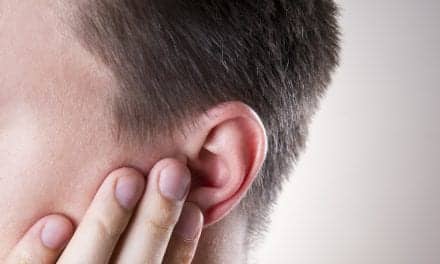September 17, 2007
BETHLEHEM, Pa—Neuromonics announced the initiation of the first post-market US study to evaluate long-term outcomes for the Neuromonics Tinnitus Treatment. This is an FDA-cleared therapy proven to interact, interrupt, and desensitize tinnitus disturbance for long-term benefit. Unlike traditional therapies, the Neuromonics Tinnitus Treatment comprehensively addresses the neurological, psychological, and audiological basis of tinnitus. Patient enrollment is now underway, and the first patient has started treatment at Silverstein Institute.
Neuromonics’ non-invasive, FDA-cleared device is customized to the patient’s unique hearing and tinnitus profile. It delivers a customized neural stimulus that promotes neural plastic changes, allowing the brain to filter and process the tinnitus. The delivery system, to carry the neural stimulus, consists of spectrally modified customized music, which engages the brain’s emotional response center, the limbic system. Research published in the April 2007 issue of Ear & Hearing demonstrates the Neuromonics Tinnitus Treatment offers clinically significant reduction in tinnitus disturbance in 91% of treated patients. The Neuromonics Tinnitus Treatment is reportedly the most comprehensive, long-term therapy that targets the neurological, audiological, and psychological basis of tinnitus. (For a report on the system, see the article by Sinopoli, Davis, and Hanley in the August 2007 edition of HR or click here.)
Clinically administered and monitored, the Neuromonics Tinnitus Treatment is a proven treatment that offers significant long-term reduction of tinnitus disturbance. The therapy is delivered via a compact, lightweight and uniquely designed medical device. Treatment typically occurs over a 6-month period, with daily use recommended for 2 or more hours per day when the tinnitus is most disturbing. The treatment can take place during regular activities such as reading, relaxing or computer work.
Primary endpoints for the Customized Acoustic Stimulation for Long-Term Medical Benefit (CALM) Study include clinically significant reductions in tinnitus disturbance and quality-of-life improvements, with patients evaluated after six months and up to 36 months post-treatment. This national study will include up to 10 clinical sites with a planned enrollment of 100 moderate-to-severe tinnitus patients collectively. The study’s lead investigator, Jack Wazen, MD, of the Silverstein Institute, will manage and oversee the trial. The two primary sites for the study are the Silverstein Institute in Sarasota, Fla, and the Cleveland Clinic in Cleveland, Ohio.
Tinnitus affects as many as 50 million people in the US. Within this patient population, 10 to 15 million seek medical treatment and 2 million have severe, highly disturbing tinnitus. The Centers for Disease Control and Prevention report 1 million new cases of tinnitus are identified each year and 200,000 per year are severe cases. Tinnitus symptoms can be so extreme that they negatively impact normal daily activities and could lead to additional medical conditions, such as anxiety, depression, sleep deprivation and elevated stress.
“The millions of patients affected by tinnitus have traditionally had limited therapeutic options,” says Wazen. “Neuromonics Tinnitus Treatment represents the first tinnitus treatment with long-term benefit, as demonstrated by previous studies. By leading the CALM Study, I hope to further our understanding of how Neuromonics Tinnitus Treatment improves quality of life and tinnitus disturbance, so that physicians and audiologists nationwide can continue making informed decisions about its clinical use.”
“Neuromonics looks forward to expanding upon the positive outcomes that have been seen in previous studies,” says Jack Springer, director and CEO of Neuromonics USA. “Neuromonics is committed to sponsoring long-term outcomes-based trials evaluating the therapy’s lasting efficacy in this difficult-to-treat patient population. Our goal is to prove that by addressing the underlying neurological and psychological causes of tinnitus, patients may experience long-term, quality-of-life improvements.”
To inquire about participating in the study, e-mail [email protected] or call (866) 606-3876.
SOURCE: Neuromonics



